In the video below, I talk about Scars being challenged, why I wrote Scars, and the need for “dark” books – for Banned Book Week. I read banned and challenged books, and I hope you do, too!
Here are some of my favorite quotes about banning books and censorship:
“Books and ideas are the most effective weapons against intolerance and ignorance.”
- Lyndon Baines Johnson
“There are worse crimes than burning books. One of them is not reading them. ”
- Joseph Brodsky
“If all printers were determined not to print anything till they were sure it would offend nobody, there would be very little printed.”
- Benjamin Franklin
“Where they have burned books, they will end in burning human beings.”
- Heinrich Heine
“Think for yourselves and let others enjoy the privilege to do so, too.”
- Voltaire
Do you have a favorite quote about banned books or censorship? How about a favorite banned or challenged book? Let me know! 
By Duane W. Roller
Racial profiling and manipulation have been around for a very long time. It has become an issue in contemporary politics, and over 2500 years ago the Greek historian Herodotos wrote that ethnicity was regularly turned to political ends. Cleopatra VII, the last queen of Egypt and a woman of great ability, is often a victim of racial profiling, as today people can be more interested in her racial background than her many accomplishments. Such concerns have recently come to the forefront with the announcement that in at least one of the several Cleopatra movies currently planned, a white (instead of black) actress would play the role of the queen. It is hard to imagine that race would be more important than acting ability, but clearly others disagree.
It has been suggested – although generally not by credible scholarly sources – that Cleopatra was racially black African. To be blunt, there is absolutely no evidence for this, yet it is one of those issues that seems to take on a life of its own despite all indication to the contrary. What follows lays out the evidence for Cleopatra’s racial ancestry, but one must not forget that this is of little importance in assessing the legacy of the queen in world history.
Let us consider exactly the evidence for Cleopatra’s racial background. It’s a little complicated, so do follow closely! She was born in early 69 BC as the descendant of a line of Egyptian kings in a dynasty that went back 250 years. Her ancestor Ptolemy I, a companion of Alexander the Great, founded the dynasty in the late fourth century BC. Ptolemy was Macedonian Greek in origin (he grew up at the royal court of Alexander’s father in Macedonia, the northern part of the Greek peninsula), and established himself as king of Egypt in the convulsive years after Alexander’s death. The descent passed through six successor Ptolemies until it reached Cleopatra’s father. So Cleopatra was no more than eight generations away from being pure Macedonian Greek.
But what about the mothers? Women are always difficult to find, even in royal dynasties, and it is here that questions of her racial background have been raised. For the first six generations the wives of the ruling Ptolemies also came from the same Macedonian background as their husbands. So until the time of Cleopatra’s great-grandfather, the ethnic makeup of the dynasty was still pure Macedonian Greek. In fact two of her ancestors married their sisters, thus reinforcing the Macedonian ethnicity.
It is with Cleopatra’s grandfather that uncertainties develop. Although he had two wives of traditional Macedonian background, he seems to have had at least one concubine of uncertain origin, who may have been Cleopatra’s grandmother. But this is by no means clear, and some sources indicate she was her husband’s sister, and thus pure Macedonian.
Assuming, however, that Cleopatra’s grandmother was not from the traditional Macedonian Greek stem, the question arises as to just what she was. Sources suggest that if she was not Macedonian, she was probably Egyptian. So by the time of Cleopatra’s grandparents, there may have been an Egyptian element in the racial stem.
Cleopatra’s father also had several wives. One was his sister, but again there is evidence that some of his five children had another mother. Yet the geographer Strabo (one of the few contemporary sources for the life of Cleopatra) wrote that all the wives of her father were women of significant status, which rules out any slaves or concubines, and makes it possible that Cleopatra’s mother was of the traditional Macedonian Greek stock. But this may not have been the case, so

I first caught a glimpse of this arc at ALA in Philadelphia. I found the cover intriguing, so I tossed it into one of my bags. Then, while attending the last Random House preview, Madapple was on the list of books being discussed. After hearing the editors speak about it, I knew I had to move it to the top of my "To Read" pile. I read it a couple of weeks ago, and have been wondering how to go about blogging this title. There is so much going on here, and yet it all works!
Aslaug has been living with her mother in Hartswell Maine in virtual isolation. Their household consists of the two of them, and they spend their days gathering local plants, and studying ancient texts, languages and lore. Whenever Aslaug has asked about her father, she is told she has none. And her mother's temper has taught her not to ask about much of anything else.
When Aslaug's mother dies, Aslaug herself is accused. After all, her neighbour sees her dragging the body to the yard to bury it. But what else is Aslaug to do? She has no real sense of how the world outside of her home works.
Once her name is cleared, she travels into the next town to look for a building where her mother once brought her. They had simply sat in the car and looked at the place, but Aslaug knows that her mother would never do something without reason. She finds the building, and is soon talking to Susan, Sara and Rune. Her family.
Aslaug is soon intertwined in a family saga filled with twists, turns and untruths. She has survived so much already, can she survive this?
Christina Meldrum has written a devastating, gut-wrenching, compelling and thoughtful story. The amount of research that must have been put into the sections on herbology and botany alone confound me. There are deep discussions of religion and faith, along with language and science. The characters are all broken but fierce, and I found myself loving and hating them in equal measure. Readers need to buy into the story, but one there, will not be able to put this book down. I have not come across a book as astounding as Madapple in a very long time.
![]()




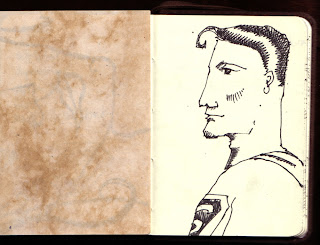
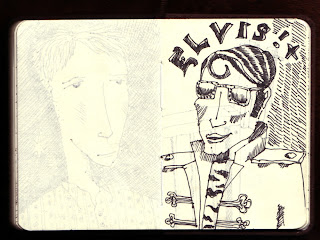
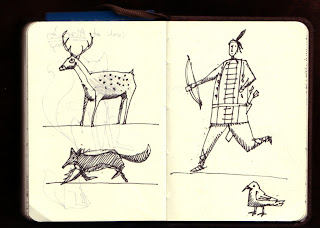
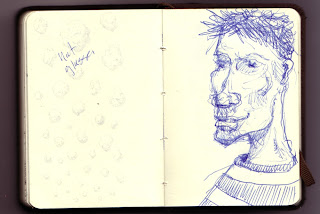
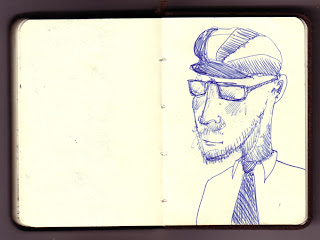
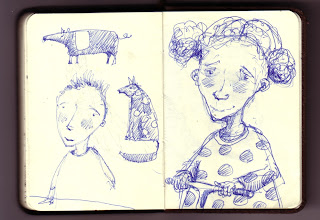
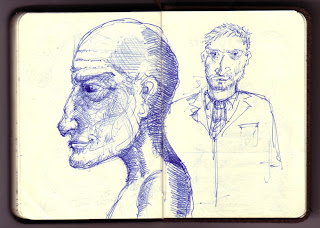
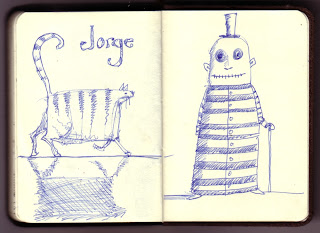




I can't wait to read this book. It sounds like its going to be a great read. The cover is very intriguing. =D